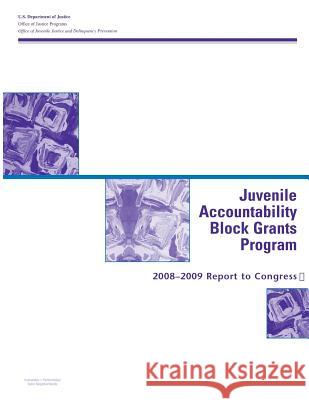Juvenile Accountability Block Grants Program: 2008?2009 Report to Congress » książka
Juvenile Accountability Block Grants Program: 2008?2009 Report to Congress
ISBN-13: 9781507577875 / Angielski / Miękka / 2015 / 26 str.
This JABG Report to Congress presents data from local subgrantees on how their accountability programs performed during the 2008 and 2009 reporting periods. This report presents the results from the fifth and sixth rounds of performance measurement data collected from U.S. states and territories and the first round of data collected from the tribes. We are encouraged by what the performance data reveal. States, communities, and tribes have embraced the performance measurement initiative; all 56 states and territories provided complete or partial 2008 and 2009 performance data to the Office of Juvenile Justice and Delinquency Prevention (OJJDP), and 51 completed all of their reporting requirements. The data show that grantees are using their JABG funds to make a difference in the specific outcomes that OJJDP and the Office of Justice Programs deem important. The performance data provide a useful tool to help local jurisdictions, states, and tribes better manage programs, allocate resources, conduct strategic planning, and inform their decision making. States can compare performance across their subgrantees to identify strong programs that might be suitable for rigorous evaluations and from which they may gain important insights into how and why programs succeed. States can also use the data to identify weaker programs that might benefit from targeted training and technical assistance or from a redesign of their approach. In addition to providing an analysis of the performance measurement data, this report outlines accomplishments at the local and tribal levels, highlights OJJDP's JABG training and technical assistance efforts, and presents results from the Tribal Juvenile Accountability Discretionary Grants program. Holding youth accountable for their delinquent acts is a matter of basic justice. It combats delinquency and improves the quality of life in our communities. OJJDP looks forward to continuing partnerships with stakeholders at the federal, state, local, and tribal levels to ensure that all youth benefit from an accountability-based approach to juvenile justice.
Zawartość książki może nie spełniać oczekiwań – reklamacje nie obejmują treści, która mogła nie być redakcyjnie ani merytorycznie opracowana.











